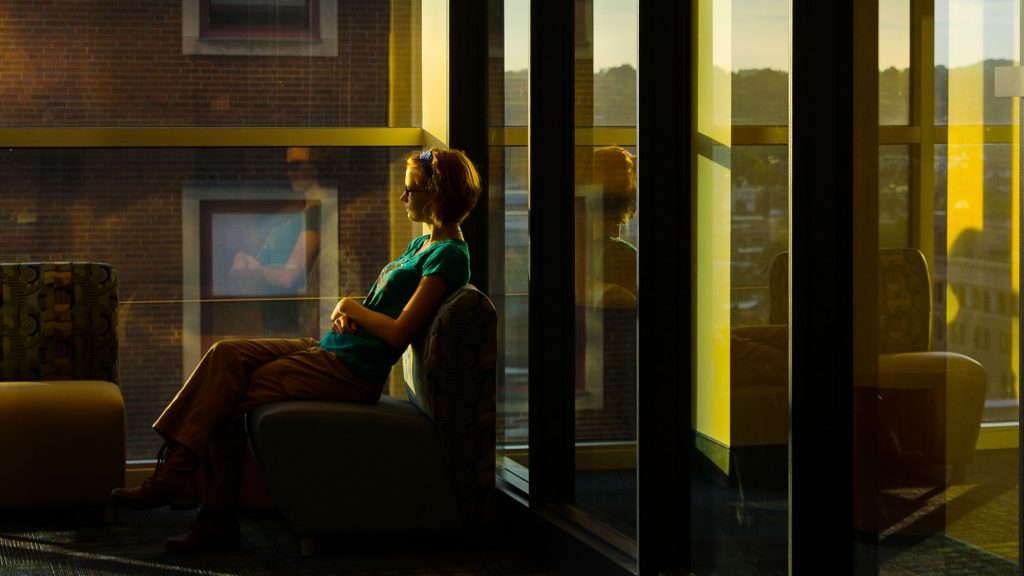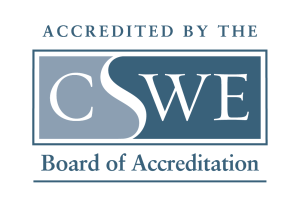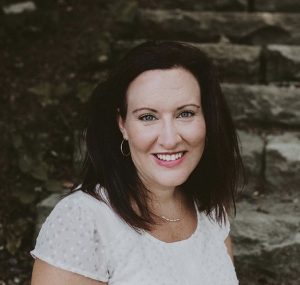Enter the workforce ready to make a change
Studies in the area of Restorative Justice will provide you with a foundational focus in addressing community-based issues pertaining to inequities in the justice system. You will also be introduced to alternate methods for addressing crime-related issues beyond the typical incarceration models most often employed by the United States.
You will be encouraged to consider how race and class affect interactions with the police and court systems. This concentration provides a solid foundation of theory, policy and research to help students become active change agents as they enter the workforce

Degree:
BSW
Delivery:
On campus & online
Campus:
Oakland
Transfer credits:
Up to 90 credits
Restorative Justice concentration curriculum
Students are required to complete the Restorative Justice sequence — Communities, Organizations in Praxis and Race, Class and Justice, as well as two courses from the following:Violence and Victims of Crime, Crime and Mental Health, Prison and Society and/or Juvenile Delinquency. Prior to taking these courses, students must complete Introduction to Social Work and Introduction to Criminal Justice.
Quick Facts
- Students are required to satisfy the requirements for the Social Work or Criminology major
- Concentration requires 12 credits, not including prerequisites
- A minimum of six credits of the selected Restorative Justice courses must be taken at Carlow University

Alternate degree completion options
Online Degree
Gain the knowledge you need at your convenience with our online degree option. When applying, indicate your interest in the online option.
Career opportunities for Restorative Justice graduates
Restorative justice provides social workers with a framework and set of practices to repair or produce resolution, to the extent possible in individual, family, community situations that may or may not involve the criminal justice system. At the macro or societal level, social workers advocate for social justice policy as well as provide resources for disenfranchised members of society.
Social workers may be working with individuals victimized by a crime or individuals court-ordered to treatment because of offending behaviors. Applications of restorative justice may be used by social workers within the criminal justice system such as in jails or prisons; or re-entry initiatives for incarcerated individuals; or within the child welfare system in cases of child abuse and neglect; or in educational settings where restorative practices are used by school social workers to build community and respond to conflict.

Accreditation
The Bachelor of Social Work is accredited by the Council on Social Work Education (CSWE). CSWE’s Commission on Accreditation is responsible for developing accreditation standards that define competent preparation and ensuring that social work programs meet them. CSWE administers a multistep accreditation process that involves program self-studies, site visits, and reviews. Carlow University’s next accreditation visit will be in 2028.
View or download the following for more information:
- View or download the Bachelor of Social Work field manual [pdf]: contains information and documents specific to the field placement component of the program
- View or download the Bachelor of Social Work program handbook [pdf]: contains policies, procedures and information about the program
- View or download the Assessment of Student Learning Outcomes [pdf]

Admission requirements and application process
- Submit an application for admission. It is free to apply.
- Request that official transcripts from all current and previous institutions you’ve attended are sent directly to the Carlow University Office of Admissions.
Apply
anytime
Start terms
Fall, Spring & Summer
Social Work faculty

Marsha Frank, PhD, LCSW Associate Professor, Social Work (MSW)

Jessica Friedrichs, MSW BSW Field Education Director, Assistant Professor

Kenneth Smythe-Leistico, EdD, MSW, LSW Field Director, Assistant Professor, Social Work (MSW)

Carrie Stott, PhD, LSW Program Director, Assistant Professor, Social Work (MSW)
Contact Admissions
If you are interested in this major, our Admissions team is available to assist you with the next steps, including scheduling an on-campus visit.
